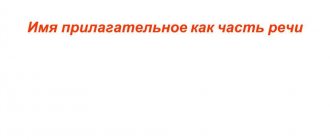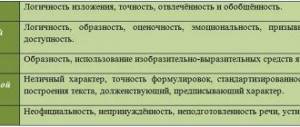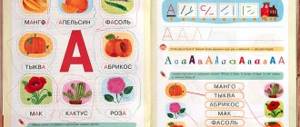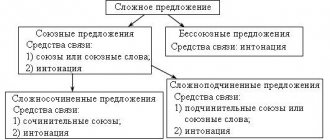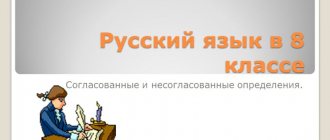Guys, the topic of our lesson is: “Synonyms and antonyms.” Today we will remember the definitions of these lexical concepts, expand our knowledge about them, enrich our vocabulary with new words, proverbs and, probably, become a little better. And for this we must work diligently, diligently, diligently in class. How else should we work?
- Rolling up my sleeves. - By the sweat of your brow. - Without stopping. - Not carelessly and not at random.
We will not be foolish, but in one fell swoop and jokingly will cope with all the tasks, we will not lose face and will prove that we are not born with bast, that wear bast shoes on our hands Read the proverbs that you wrote out at home from the book “Proverbs and Sayings of the Russian People” that contain antonyms. Name the antonyms in them. - The head is gray, but the soul is young ( the head is the soul, the gray is young). - There is honey on the tongue, and ice in the heart ( medok - ice ). - Neither a young man is a good fellow, nor an old man when he is old ( from a young age - an old man, a young man is an old man ). - Both from a young age and in old age ( from a young age - in old age ). - The young crane flew high and sat low ( flew - sat, high - low ). - A good master is the master of money, and a bad master is a servant ( good is bad, servant is master ). - Speeches are like snow, but deeds are like soot ( speeches are deeds, snow is soot). - Rye feeds completely, and wheat is optional (completely – optional). - In the eyes he is sweet, for the eyes he is hateful (in the eyes - for the eyes, he is sweet - he is hateful). - You can’t jump over, so you can crawl up ( you can’t - you can, jump over - you can crawl up). - Don’t pretend to be a sheep: the wolf will eat ( sheep - wolf). - Speeches are honey, but deeds are like wormwood ( speeches are deeds, honey is wormwood). - The shirt is white, but the soul is black ( white - black). - Beauty will take a closer look, but intelligence will come in handy ( beauty is intelligence). - It fits in one ear and comes out of the other ( gets in and out ). - The hair is long, but the mind is short (long is short). - A smart person will not judge, and a stupid person will not judge ( smart - stupid). - The smart one cries, and the stupid one jumps (smart - stupid, cries - jumps). - A gentle look, but poison on the tongue ( a gentle look is poison). Which proverb did you like more than others? Explain why. Are the words mosol - whip, crooked - crooked, duck - goose, soft - nasty, frog - ox ? - They are not, because antonyms are words with opposite lexical meanings, and these words do not have such a meaning. Write down the proverbs and say whether the words listed in them are antonyms. the corn in your left hand , and hold the whip in your right hand. To the crookedness - not trouble, but grief - crooked. matter how much a duck is invigorated, it cannot be a goose You have kvass on the street, but you come into the house and water . It's smooth, soft, but tastes disgusting. No matter how the frog pouts , it ’s still far from the ox . — In proverbs, these words are antonyms. These are contextual antonyms, they are antonyms only in that context. In the fairy tale “The Little Humpbacked Horse”, find passages containing antonyms. Write them out. Highlight the antonyms.
-Beyond the mountains, beyond the forests, Beyond the wide seas, Not in the sky - on earth There lived an old man in one village. -The old lady has three sons: The eldest smart kid, The middle son was this and that, The youngest was a complete fool.
-The brothers sowed wheat and took it to the capital city: You know, that capital was not far from the village. There they sold wheat , accepted money with a bill , and returned home with a full bag.-Are they driving close or far, are they driving low or high...
-Soon the fairy tale is told, Things slowly .
-Here Ivan said goodbye to the earth and found himself in heaven .
-The guard prayed, to the right, to the left ...
- The night passes, the day comes...
-It you in winter , and in summer with cold ...
Can all words have antonyms? — Not every word has an antonym. Most often, words denoting characteristics or qualities have antonyms. What are antonyms used for? - To indicate the properties and qualities of objects: low - high. - To indicate temporal and spatial relationships: night - day, right - left, earth - sky. - To denote the properties of the mind and character: good - evil, smart - fool. What is Ivan like in the fairy tale? - Ivan is kind, simple-minded, gentle, compliant, selfless. Find in S.I. Ozhegov’s “Explanatory Dictionary of the Russian Language” the lexical meaning of the words kind, ingenuous, gentle, compliant, selfless, and confirm with examples from the text that Ivanushka is really like that. Kind – doing good to others, being sympathetic, and also expressing these qualities. Ivan helped the whale fish.
“So, dear fathers, is it not possible for you to ask the Sun: How long will I be in disgrace, And for what sins do I suffer troubles and torment? - “Okay, okay, whale fish!” - Our Ivan shouts to him.
Ingenuous - straightforward, simple. It doesn’t even occur to Ivan that the brothers might steal the horses.
“Oh, you horses of Bor-Siva! Good golden-maned horses! I didn’t caress you, friends, but what the hell stole you?
Gentle - good-natured. Forgives the brothers who stole the golden-maned horses. Compliant - ready to give up something without arguing, accommodating. Allows the brothers to sell their horses.
“Well, if that’s the case, then go,” says Ivan, “sell the Golden Manes two horses...
Selfless - alien to selfish interests. He carries out all the king's orders and does not require rewards. The king himself rewards him.
Caring – caring, attentive, diligent.
He puts a feather in the bottom, begins to brush the horses, washes them, tidies them up, braids long manes, sings different songs.
And having removed them, he strained enough honey into both vats and poured Beloyar’s millet in full. And what kind of king? - The king is stupid and cruel. - Stupid - not showing intelligence. At seventy I decided to marry a young girl.-Cruel – merciless, merciless. "What? Dress me up with you! - He shouted. - But look! If you do not fulfill the command at dawn, I will give you to torment, I will order you to be tortured, to tear you apart piece by piece.”
What can you say about the sleeping bag? - He is insidious, vengeful, dirty, vile. -Insidious – characterized by deceit. Deceit is malicious intent covered by ostentatious goodwill.
It’s no wonder that he was angry with Ivan and swore, Even if he fell into the abyss, he would drive the stranger out of the palace. But, hiding his deceit, He pretended, for every occasion, to be deaf, short-sighted and dumb; He himself thinks: “Wait a minute, I’ll move you, you idiot!” - Vengeful - prone to revenge, vindictive.
“No, wait, milksucker! It won't always happen to you to distinguish yourself in such a canal way. I’ll let you down again, my friend, into trouble!” -Dirty - doing dirty tricks. Mischief is a nasty act with the intention of harming someone. Let me keep watch, And if I don’t, I can shoot a bullet, Without blinking, I know how to drain it, - If only the fool would leave. I will convey to the royal Duma that the sovereign’s equerry is a Basurman, a sorcerer, a Warlock and a villain;-Sneaky - morally low, dishonest. “Eh! so that's it! - the sly man finally muttered to himself, - Okay, tomorrow the king will find out what your stupid mind is hiding. Just wait one day, you will remember me!”
Comparing Ivan, the Tsar and the Stirrup, what can we say about them? -Ivan is good, but the Tsar and the stirrup are bad.
If you decide that Ivan is good, and the Tsar and the Stirrup are bad, then look in the Explanatory Dictionary of the Russian Language for the meaning of these words. - Good - quite positive in its qualities. - Bad - devoid of positive qualities.
In the “Dictionary of Epithets of the Russian Language”, from the dictionary entry opening with the heading word Character, select words that we can use to characterize good people. -Kind, caring, warm-hearted, attentive, honest, simple-minded, noble, sublime, delicate, friendly, cheerful, wonderful, golden, soft, affectionate, courageous, gentle, kind, open, even, selfless, nice, brave, quiet, compliant , generous, faithful, affectionate, modest, sensitive, merciful, magnanimous, selfless, noble, courageous, fair, beautiful. How are these words similar and how are they different? — These words are different in sound, but close in meaning. They differ in shades of meaning. These are synonyms. — Synonyms are used to avoid repetition and to more accurately express a thought. Synonyms form a synonymous series. Make up a synonymous series from the proverbs you cited earlier. - Speeches are like snow, but deeds are like soot; speeches are honey, but deeds are like wormwood; a gentle look, but poison on the tongue; there is honey on the tongue, and ice in the heart. Speaking about what kind of people can we apply these proverbs? — We can apply these proverbs when talking about bad people. From the same dictionary entry, select words that we can use to describe bad people. - Soulless, greedy, heartless, disgusting, rude, cruel, petty, arrogant, insignificant, disgusting, indifferent, narcissistic, careless, treacherous, insidious, power-hungry, greedy, arrogant, despotic, arrogant, malicious, evil, capricious, petty, vindictive , unpleasant, dirty, mean, narcissistic, grumpy, nasty, arrogant, extravagant, poisonous, sarcastic, cold, indifferent, dishonest, impudent, insidious, vile. There is a word - sweet as honey, and there is a word - bitter as wormwood. In which synonymous row is each word as sweet as honey and in which is it as bitter as wormwood? — In the first synonymous row the word is sweet as honey, in the second it is bitter as wormwood. What kind of person do you think is better to be - good or bad? — It’s better to be a good person, because everyone loves good people and they always receive a reward, as in the fairy tale “The Little Humpbacked Horse” Ivan. At the beginning of the fairy tale, Ivan is Ivanushka the Fool (“the younger one was a fool”) , at the end - “ a handsome man .”
And he became so handsome, What cannot be said in a fairy tale, Nor can be written with a pen! He married the Tsar Maiden and became king.
What synonyms for the word handsome does the Dictionary of Synonyms give? Read it. - Beautiful , Wonderful (perfect in its beauty), a wonderful people's poet, intensifies. Beautiful princess, red ustar. and people - poet. - Well, dear friends, my red bride does not drink, does not eat, does not serve: What is the bride grieving about? (Pushkin). – Wed. Pretty. - Comely (possessing a pleasant, attractive appearance) The lady was no longer young, but pretty (A. Stepanov), dear - How sweet she will be, she will be a beauty (L. Tolstoy), cute , affectionate. Lidochka was very cute (M. Gorky), pretty (mainly about a child, a young girl, a woman), cute , talkative, disdainful. – Wed. Handsome, Charming. - Charming (possessing an attractive, captivating force, evoking a feeling of admiration), charming, charming (mainly about a person, his appearance, smile, voice, etc.), enchanting intensifier, charming , captivating intensifier. – Wed. Magical, Beautiful, Pretty. - Magical (possessing extraordinary charm, charm, having great attractive power), witchcraft , enchanting (possessing irresistible charm), enchanting, enchanting . – Wed. Marvelous, Charming, Beautiful. Marvelous (striking with its beauty, charm, causing delight, admiration), wonderful, miraculous , magical will enhance. , fabulous , fantastic, enchanting. - Wed. Magical, Beautiful. Write down the synonyms. (Beautiful, wonderful, beautiful, red, comely, cute, pretty, cute, charming, charming, charming, enchanting, enchanting, enchanting, wondrous, wonderful, wonderful, magical, fabulous). This synonymous series includes the word beautiful .
It is also included in the previous synonymous series. Why? - This word has many meanings. Its first meaning is very beautiful, the second is very good. The synonyms for both meanings are different, therefore the synonymous series are different. Today we talked about synonyms and antonyms, about the lexical meaning of the word. We didn’t pound water in a mortar, we didn’t waste time uselessly, we didn’t work so-so, but we worked hard and therefore we can easily derive the main idea of the lesson.
“Nature gives us a very beautiful appearance, but it is within our power to become very good people.” - We must strive to become good people. At home, choose one word from both synonymous rows, for example, honest and capricious, write out their lexical meaning from S.I. Ozhegov’s “Explanatory Dictionary of the Russian Language” and tell in writing when you showed yourself to be honest people, and when capricious.
